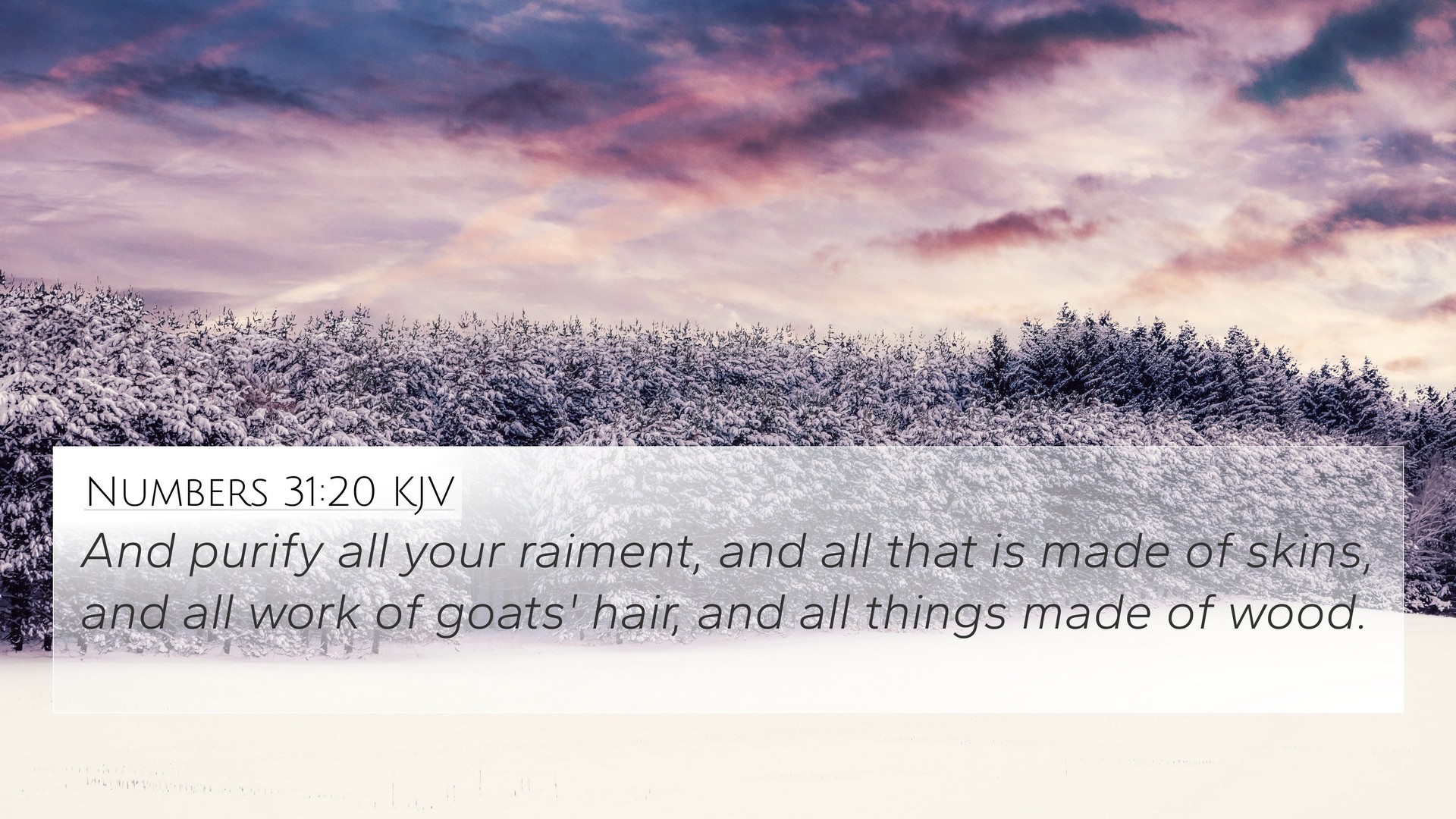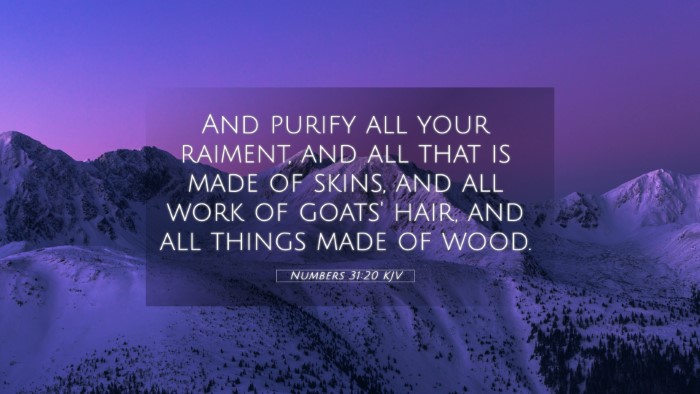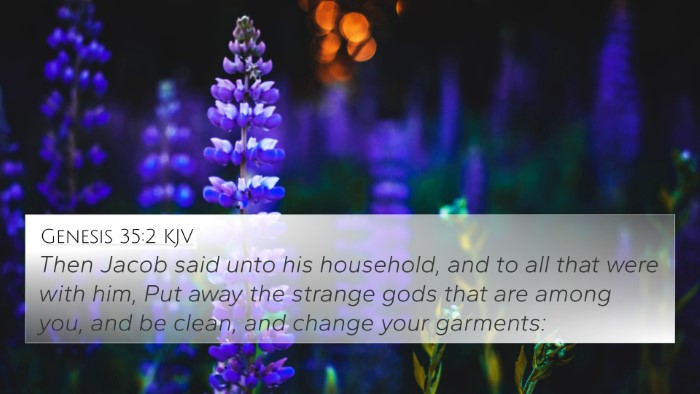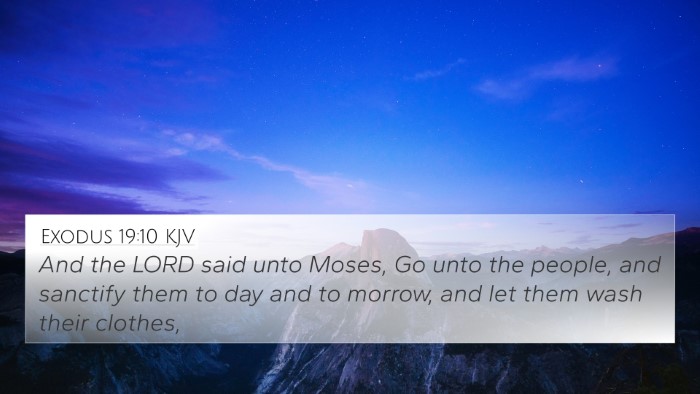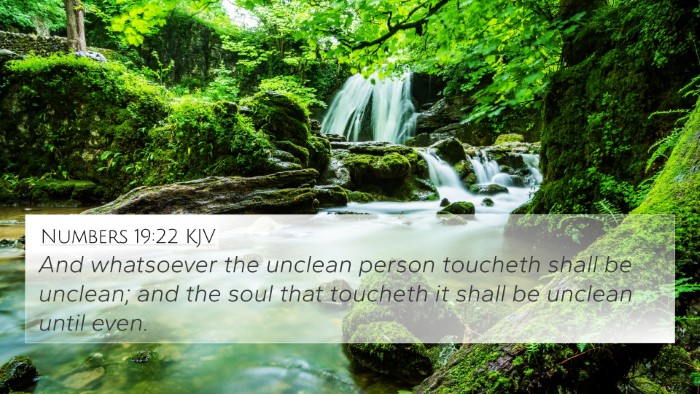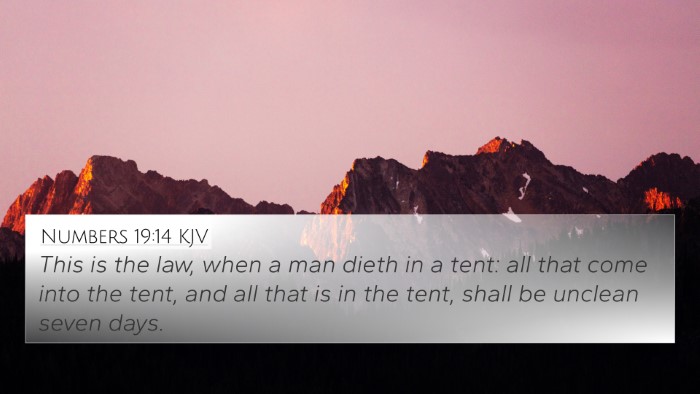Understanding Numbers 31:20
Numbers 31:20 states:
"And purify all your raiment, and all that is made of skins, and all work of goats' hair, and all things made of wood."
This verse is part of the larger context where the Israelite army is instructed to deal with the spoils of battle and the purification rites following the defeat of the Midianites.
To grasp this verse's meaning, we can draw insights from several public domain commentaries, including those by Matthew Henry, Albert Barnes, and Adam Clarke.
Summary of Commentary Insights
-
Matthew Henry:
Henry emphasizes the importance of purification after engaging in warfare. This purification was necessary for restoring the community and maintaining holiness before God. It highlights the seriousness of their victory and the need for sanctification of the spoils and any items they had come into contact with during the battle.
-
Albert Barnes:
Barnes explains that the order to purify various materials shows the comprehensive nature of purity in the worship practices of the Israelites. Each item, regardless of its utility, had to be deemed clean for use in communal worship and daily life, showcasing the pervasive holiness that God required of His people.
-
Adam Clarke:
Clarke discusses the ritualistic aspects of purification. He notes that the different materials mentioned (raiment, skins, goats' hair, and wood) were commonly used in both daily life and sacred practices, thus underlining the connection between mundane activities and spiritual life.
Cross-References and Thematic Connections
Numbers 31:20 can be cross-referenced with several other Bible verses that expand on themes of purification, holiness, and the relationship between God and His people. Here are some related verses:
- Exodus 19:10: God instructs the people of Israel to consecrate themselves as they are preparing to meet Him.
- Leviticus 11:44: "For I am the Lord your God: ye shall therefore sanctify yourselves, and ye shall be holy; for I am holy." This echoes the theme of holiness and purification.
- Hebrews 9:13-14: The comparison of the blood of animals for purification versus the greater purification we find in Christ.
- Psalms 51:7: "Purge me with hyssop, and I shall be clean: wash me, and I shall be whiter than snow." A prayer for spiritual and ritual purity.
- 1 Peter 1:15-16: Calls Christians to be holy, as God is holy, echoing the instructions in the Old Testament.
- 2 Corinthians 7:1: Paul reminds believers to cleanse themselves from all filthiness of the flesh and spirit.
- Isaiah 1:16-17: Emphasizes the need to wash yourselves and make yourselves clean, reflecting the call to purification in Numbers 31.
Thematic Bible Verse Connections
The connection between these verses reflects a broader biblical theme of purification and holiness. The act of purifying spoils after battle serves as a metaphor for the need to cleanse our lives from sin and to approach God with reverence.
This relates to the overarching narrative of scripture that God desires a holy people who reflect His character in their lives.
In biblical studies, cross-referencing Biblical texts is vital for developing a comprehensive understanding of scripture. Tools like a Bible concordance or a Bible cross-reference guide can assist in exploring these connections.
Cross-reference Bible study allows for deeper insight into how themes and commands are connected across different books and testaments.
How to Use Bible Cross-References Effectively
To engage in effective biblical study using cross-referencing:
-
Identify key themes or issues in the verse.
-
Explore related verses that touch upon the same themes. For example, if studying Numbers 31:20, consider how other purification rites in the Bible relate to this instruction.
-
Analyze the context of each verse, understanding the historical and cultural settings to glean a fuller meaning.
-
Utilize a comprehensive Bible cross-reference system to trace connections. This could involve looking at thematic links or direct quotations that enhance understanding.
Conclusion
Numbers 31:20 provides a significant insight into the practices of the Israelites concerning holiness and purification. Through comparative analysis with other biblical texts, one can see that the directive to purify serves as an ongoing reminder of the call to holiness that permeates the entire Bible.
As believers today, this passage encourages a continuous journey towards spiritual cleanliness, reminding us of Christ's fulfillment of these rituals in establishing a new covenant based on grace and sanctification.
